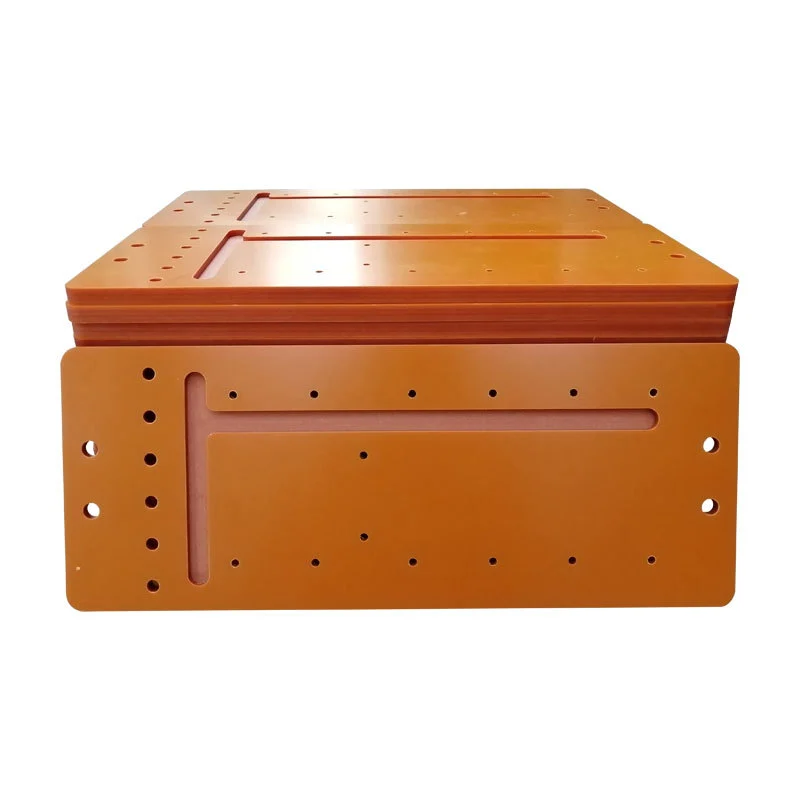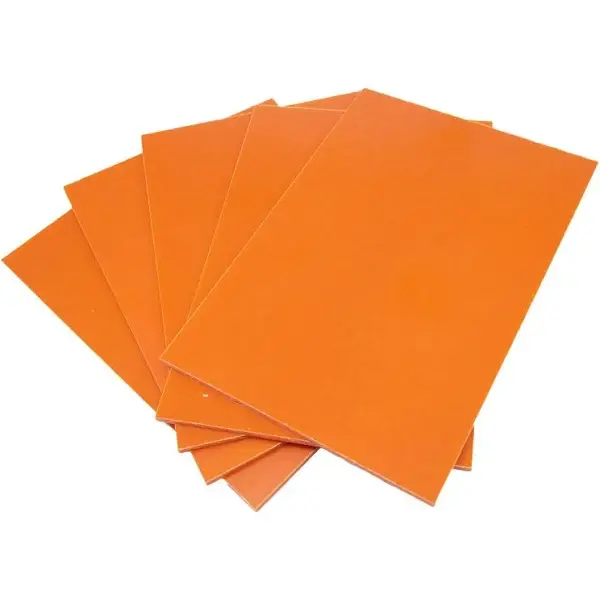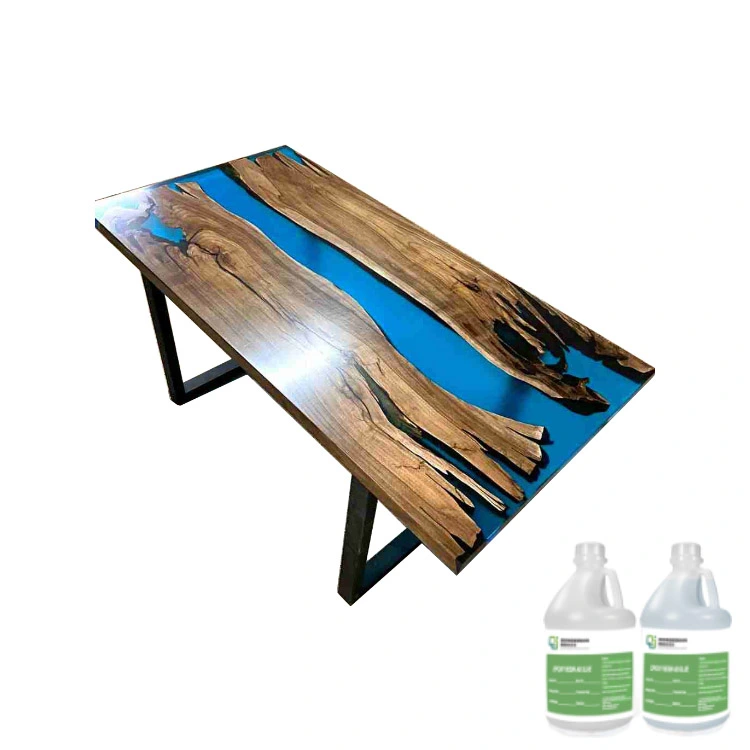Exploring the Comparison of Bakelite Sheets with Other Materials
2024-05-08 16:36:39
Introduction
Bakelite sheets have long been revered for their versatility and utility across a spectrum of industries. These sheets, composed of phenol formaldehyde resin and fillers, offer a plethora of properties that make them indispensable in various applications. In this article, we delve into the comparative analysis of sheets with other materials, aiming to elucidate their unique characteristics and advantages. Through this exploration, we seek to understand how sheets stack up against alternative materials in terms of electrical insulation, thermal stability, mechanical strength, and chemical resistance. By examining these properties in depth, we can appreciate the distinct qualities that set sheets apart and ascertain their suitability for diverse industrial needs.
|
|
Basic Information: Brand: Hongda Materials: Phenolic Resin Nature Color: Black and Orange Thickness: 2mm --- 100mm Regular Size: 1040mm*2080mm Custom Size: 1220mm*2440mm Packaging: Regular packing, Protect by Pallet |
| Contact Us | |
Properties of The Sheets
- Electrical Insulation: One of the hallmark features of sheets is their exceptional electrical insulation properties. Due to their high dielectric strength and resistance to electrical conductivity, sheets are extensively used in electrical insulation applications, such as insulating spacers, circuit boards, and electrical enclosures.
- Thermal Stability: The sheets exhibit remarkable thermal stability, enabling them to withstand high temperatures without undergoing deformation or degradation. This property makes sheets ideal for applications where exposure to elevated temperatures is common, such as in electrical components and automotive parts.
- Mechanical Strength: With their inherent strength and stiffness, sheets offer robust mechanical properties. They can withstand mechanical stress and impact, making them suitable for structural components, machine parts, and industrial equipment.
- Chemical Resistance: The sheets demonstrate excellent resistance to a wide range of chemicals and corrosive substances. This property ensures their longevity and reliability in harsh environments where exposure to chemicals is prevalent, such as chemical processing plants and laboratories.
- Dimensional Stability:The sheets maintain their shape and dimensional integrity under various conditions, contributing to their stability and reliability in applications requiring precision and consistency. This property is crucial in industries such as aerospace, automotive, and manufacturing.
- Surface Finish and Aesthetic Properties:The sheets offer diverse options for surface finish and aesthetic customization. They can be molded into different shapes, colors, and textures, enhancing their visual appeal and functional versatility in applications where aesthetics are important.
Overall, the unique combination of electrical insulation, thermal stability, mechanical strength, chemical resistance, dimensional stability, and aesthetic properties makes it a preferred choice for a wide range of industrial applications.
Comparison with PVC (Polyvinyl Chloride)
PVC is a widely used thermoplastic known for its flexibility and low cost. However, when compared to sheets, PVC exhibits inferior electrical insulation properties, lower thermal stability, and reduced resistance to chemicals and heat. The sheets, with their superior performance in these areas, are often preferred for applications requiring high reliability and durability.
Comparison with Fiberglass
Fiberglass is a composite material known for its strength and durability. While fiberglass shares some similarities with sheets, such as excellent mechanical strength, sheets outperform fiberglass in terms of electrical insulation and thermal stability. This makes sheets a preferred choice for applications where insulation and heat resistance are paramount.
Comparison with Epoxy Resin Sheets
Epoxy resin sheets offer good mechanical properties and chemical resistance, similar to Bakelite sheets. However, sheets excel in electrical insulation and thermal stability, making them more suitable for applications in high-voltage equipment and environments with elevated temperatures.
Comparison with Phenolic Resin Sheets
Phenolic resin sheets, like sheets, are renowned for their exceptional electrical insulation properties. However, sheets typically exhibit higher thermal stability and mechanical strength, making them preferable for applications subjected to harsh operating conditions or mechanical stress.

Comparison with Metal Sheets
Metal sheets are valued for their strength and conductivity, but they lack the electrical insulation properties of sheets. Additionally, metal sheets are prone to corrosion and often require additional coatings for protection, whereas sheets offer inherent resistance to chemicals and environmental degradation.
Applications and Suitability:The sheets find widespread use in various industries, including electrical engineering, automotive, aerospace, and consumer goods. Their superior properties make them suitable for applications such as circuit boards, insulating components, automotive parts, and household appliances. When compared to alternative materials, sheets offer distinct advantages in terms of performance, reliability, and cost-effectiveness.
Conclusion:In conclusion, the comparison of sheets with other materials underscores their exceptional properties and versatility in industrial applications. While each material has its strengths and weaknesses, sheets emerge as a preferred choice for applications requiring superior electrical insulation, thermal stability, mechanical strength, and chemical resistance. As industries continue to demand high-performance materials, sheets remain at the forefront of innovation and technological advancement.
Contact Us
Looking for high-quality Bakelite sheets for your industrial needs? Look no further! We are a professional manufacturer with a GMP-certified facility, extensive inventory, and comprehensive certifications. Our products support OEM requirements, ensuring quick delivery and meticulous packaging. Partner with us today for reliable solutions tailored to your specifications. Contact us at info@jhd-material.com to explore our offerings and embark on a fruitful collaboration.
References
- "Bakelite - Properties and Applications" by AZoM. Available online: [link]
- "Comparative Study of Thermal Conductivity of Different Engineering Materials" by ResearchGate. Available online: [link]
- "Electrical Properties of Bakelite" by WIKI. Available online: [link]
- "Comparative Study of Mechanical Strength of Bakelite and PVC Sheets" by ResearchGate. Available online: [link]
- "Chemical Resistance of Bakelite and Phenolic Resin Sheets" by Polymer Engineering & Science. Available online: [link]








